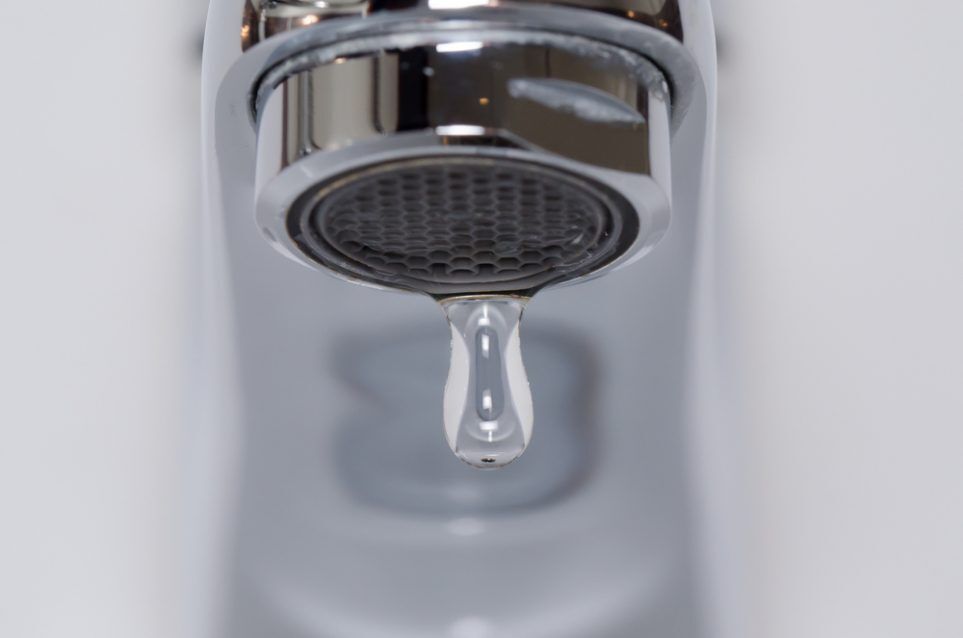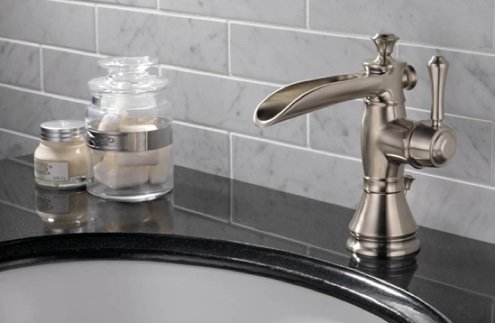When It's Essential to Fix a Dripping Faucet
When It's Essential to Fix a Dripping Faucet
Blog Article
The publisher is making a few great pointers relating to 4 Common Reasons for a Leaky Faucet as a whole in this content just below.

Leaking taps might look like a small inconvenience, yet their influence goes beyond simply the inconvenience of the audio. From wasting water to sustaining unnecessary monetary prices and wellness risks, ignoring a trickling tap can lead to different consequences. In this article, we'll delve into why it's important to address this typical family problem without delay and properly.
Wastefulness of Water
Ecological Impact
Leaking faucets contribute dramatically to water wastage. According to the Environmental Protection Agency (EPA), a solitary faucet dripping at one drip per second can throw away more than 3,000 gallons of water annually. This not only stress water sources but likewise impacts environments and wildlife dependent on them.
Financial Expenses
Boosted Water Costs
Beyond the ecological effect, dripping taps can pump up water costs significantly. The built up waste gradually converts into greater energy expenditures, which could have been prevented with timely fixings.
Potential Home Damages
Additionally, extended dripping can lead to damage to fixtures and surface areas bordering the tap. Water accumulation can trigger discoloration, rust, and even architectural concerns if left unattended, causing additional repair costs.
Wellness Issues
Mold And Mildew and Mold Growth
The continuous visibility of wetness from a dripping faucet creates a suitable setting for mold and mildew and mold growth. These fungis not only endanger indoor air quality yet likewise posture health risks, specifically for people with respiratory conditions or allergies.
Waterborne Illness
Stationary water in trickling taps can come to be a breeding place for germs and various other virus, raising the danger of waterborne conditions. Contaminants such as Legionella microorganisms prosper in stationary water, possibly causing significant illnesses when ingested or inhaled.
Do it yourself vs. Specialist Repair
Advantages and disadvantages of DIY Repair Work
While some may attempt to fix a trickling tap themselves, DIY repair services come with their very own set of challenges. Without appropriate understanding and tools, do it yourself efforts can exacerbate the concern or cause incomplete repair work, lengthening the trouble.
Advantages of Employing a Specialist Plumber
Employing a specialist plumber ensures that the underlying source of the trickling faucet is addressed successfully. Plumbing technicians have the proficiency and equipment to identify and fix tap problems efficiently, conserving time and reducing the threat of additional damages.
Step-by-Step Guide to Taking Care Of a Dripping Faucet
Devices Called for
Before trying to deal with a leaking tap, gather the necessary tools, including a flexible wrench, screwdrivers, replacement components (such as washers or cartridges), and plumber's tape.
Usual Faucet Issues and Their Solutions
Determine the kind of tap and the certain problem causing the drip. Usual issues consist of worn-out washing machines, corroded shutoff seats, or malfunctioning O-rings. Refer to producer guidelines or on-line tutorials for detailed support on repairs.
Preventive Measures
Normal Upkeep Tips
To stop leaking faucets, perform regular upkeep such as cleansing aerators, examining for leaks, and changing worn-out parts immediately. In addition, think about mounting water-saving gadgets or upgrading to a lot more effective components.
Value of Prompt Repairs
Dealing with trickling faucets as quickly as they're noticed avoids more water waste and potential damages, ultimately saving both water and cash in the long run.
Effect On Home Value
Perception of Well-Maintained Home
Keeping a building in good condition, consisting of addressing maintenance concerns like leaking taps, enhances its regarded value and worth among prospective buyers or lessees.
Influence on Resale Value
Qualities with well-kept plumbing fixtures, including taps, command higher resale worths in the realty market. Dealing with trickling taps can add to a positive impression throughout residential property inspections and settlements.
Ecological Obligation
Individual Payment to Preservation
Taking obligation for taking care of leaking faucets lines up with wider initiatives toward water preservation and ecological sustainability. Every person's actions collectively make a significant influence on preserving priceless resources.
Sustainable Living Practices
By focusing on timely repair work and embracing water-saving routines, people add to sustainable living techniques that benefit both existing and future generations.
Conclusion
Addressing a leaking faucet goes beyond plain comfort; it's a necessary step toward preserving water, reducing economic costs, and protecting health and wellness and residential property. Whether through do it yourself repairs or expert help, acting to take care of trickling faucets is a little yet impactful method to advertise accountable stewardship of sources and contribute to a healthier, a lot more sustainable future.
How to Fix a Leaky Faucet: Step-by-Step Repair Guide
A leaky faucet may seem like a simple annoyance, but if it's not fixed promptly, that leak could cost hundreds to potentially thousands. From water damage to mold, mildew, and high water bills, even a tiny leak can be catastrophic if left unattended. Damage like this can even affect the overall value of your home, so it's important to take the right approach for leaky faucet repair. You may need the help of a plumber in some cases, but we've got a few tips you can try on how to fix a leaky faucet before calling the pros.
Four Faucet Types
When you're learning how to fix a leaky faucet, the first step is knowing what kind of faucet you're working with! There are four common types.
Cartridge Faucets
Cartridge faucets come in one- or two-handled varieties. In one-handled cartridge faucets, hot and cold water combines in a single cartridge. In the two-handled versions, hot and cold water are controlled separately and mixed in the faucet.
Ball Faucets
Ball faucets have a single lever you push up and down to adjust the pressure and rotate to change the temperature. A slotted metal ball controls the amount of water allowed into the spout.
Compression Washer Faucets
They're the oldest type of faucet, but they're still used in many homes — especially older ones. Compression faucets have two separate handles that, when turned, raise or lower the washer that seals a water valve. This valve stops water from flowing through the faucet when it is turned off.
Disc Faucets
Disc faucets rarely need to be repaired due to their maintenance-free design. The water flow is controlled by two discs — the upper one raises and lowers against a fixed lower disc, creating a watertight seal. If your disc faucet starts leaking, you may need to replace the seals or clean residue buildup from the inlets.
Fixing a Leaky Faucet
Step 1: Turn Off the Water
Whether you're learning how to fix a leaky bathtub faucet or how to fix a leaky kitchen faucet, always turn off the water supply to your working area when you're fixing a leak. The last thing you want is a flood added to your list of things to fix.
Look for the shutoff valves below your sink or around the tub and turn them clockwise to stop the water flow. If your faucet doesn't have shutoff valves, you may need to turn off the water for the whole house. Check to make sure it's off by turning the faucet on. If nothing comes out, you're ready to start the repair.
Step 2: Take Apart the Faucet
How you disassemble your faucet depends on the type of fixture you have. You can use a flathead screwdriver to remove the caps on top of the handle or handles for cartridge and compression faucets. Inside, you should see handle screws. Unscrew these with a screwdriver to remove the handle.
Disc- and ball-style faucets will typically have an inlet screw near the handle, and removing that will reveal the interior of the faucet.
Detach the Valve Stem
For cartridge- and compression-style faucets, you'll see the inner valve stem or cartridge once you remove the faucet handles. If you have a compression faucet, unscrew the brass valve stem. If you have a cartridge faucet, pull out the cartridge. If your cartridge has been in place for a while, it may require some tools or extra force to remove it due to mineral deposits.
Examine and Replace Parts
Once you've removed the parts, check them out to confirm what needs to be replaced. You may see corroded rubber washers, O-rings, stems, or cartridges. On a ball-style faucet, check the seats and springs for damage.
If you need to repair a leaky disc faucet, check the inlet and seals on the lower disc.
Once you determine what parts must be replaced, visit your local hardware store. Bring the damaged parts with you to ensure you can purchase the correct components to replace them.
Clean Valves and Faucet Cavity
If you've removed a stem or cartridge, you may notice mineral buildup in the faucet's threads. Use white vinegar to clean the valve seat by soaking it for a few minutes, then scrub it away with a soft toothbrush and rinse with warm water. You can also clean the interior of the faucet in the same way.
Reassemble the Faucet
Once your faucet is cleaned and the required parts have been replaced, it's time to reassemble it. Put the pieces back together and slowly turn the water supply back on. Doing this slowly is crucial because too much initial water pressure can damage the new hardware you've just installed.
https://homewarranty.firstam.com/blog/how-to-fix-leaky-faucet

I found that blog post on when perusing the search engines. Sharing is caring. Helping others is fun. Thanks a bunch for your time. Don't hesitate to check our website back soon.
Report this page